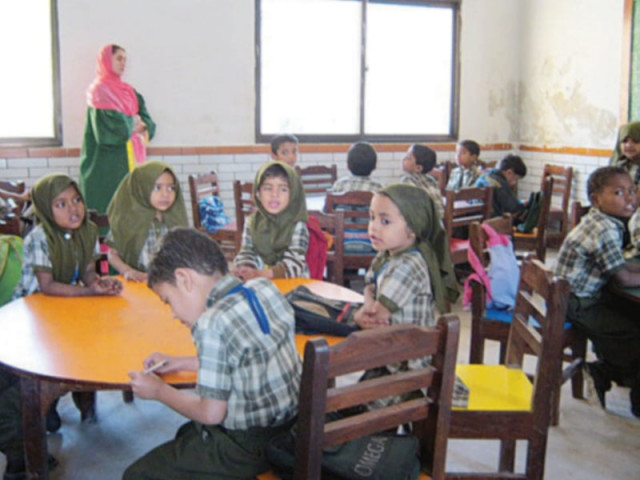Positive Pakistanis: The special editor
Shah’s story is an inspirational one. Shah has been editing and proofreading at Oxford University Press for years.

Later, when I asked a friend about this, he said, “When a disabled person lives in the area the council makes a sloped curb near their house instead of a square-edged curb so that the wheelchair can pass into the house easily. They also place this notice on the wall and if you make the mistake of parking your car here, you are heavily fined.”
My host continued, “Utility bills are waived, disabled people get special parking zones downtown and buses lower to help get the wheelchair inside. And there are slopes everywhere to help them move about.”
I really began to envy the freedom with which disabled people could live their lives abroad, especially when I thought about the hardships that an acquaintance of mine, Syed Abdul Wadood Shah, faces in Pakistan.
Shah’s story is an inspirational one. A normal little boy until he was five, he was deprived of speech and hearing by a serious illness. Despite this, he continued to go to school, and completed his master’s in Mass Communication from the University of Karachi.
He communicates by writing his thoughts on paper, but for people close to him it is enough for him to scribble in the air with a finger. His family and close friends respond in the same way, which he understands well, and the conversation continues.
“Sometimes I worry about Shah ji,” says a colleague. “Overwork and lack of sleep have started affecting his eyesight, and now he has to use eye drops and is always splashing his eyes with fresh water.
53-year- old Shah looks older than his age because of the life he has had to lead. He supports a family of three; his two daughters study in class eight and he also has a baby boy. In spite of these challenges, Shah has been editing and proofreading text at Oxford University Press for many years and also assisted in finalising the text of the Oxford English-Urdu Dictionary translated by Shanul Haq Haqee.
Fluent in English and Urdu, he translates at high speed. But what is most exceptional about him is his peaceful and happy demeanour. The only time when he expresses disappointment is when he sees anyone compromising on the quality of their work.
All his colleagues are convinced of his ability and dedication. In fact, the only time they find it difficult to get along with him is when he questions the accuracy of their work. “Shah Ji is a perfectionist,” says one of his colleagues. “He has to work at many places to bear the economic burdens his life has placed on him, but his work is always perfect, and he never forgets to ask you for your feedback, so that he can improve.”
Shah has worked for many popular magazines and publications, but it has always been difficult for him to make ends meet. Currently, he also works in an Urdu daily where he is in charge of a few pages and writes editorials as well. Despite all this, he is always smiling — a genial human being, and a beacon of light even to those who have more than him.
Published in The Express Tribune, Sunday Magazine, June 26th, 2011.



















COMMENTS
Comments are moderated and generally will be posted if they are on-topic and not abusive.
For more information, please see our Comments FAQ